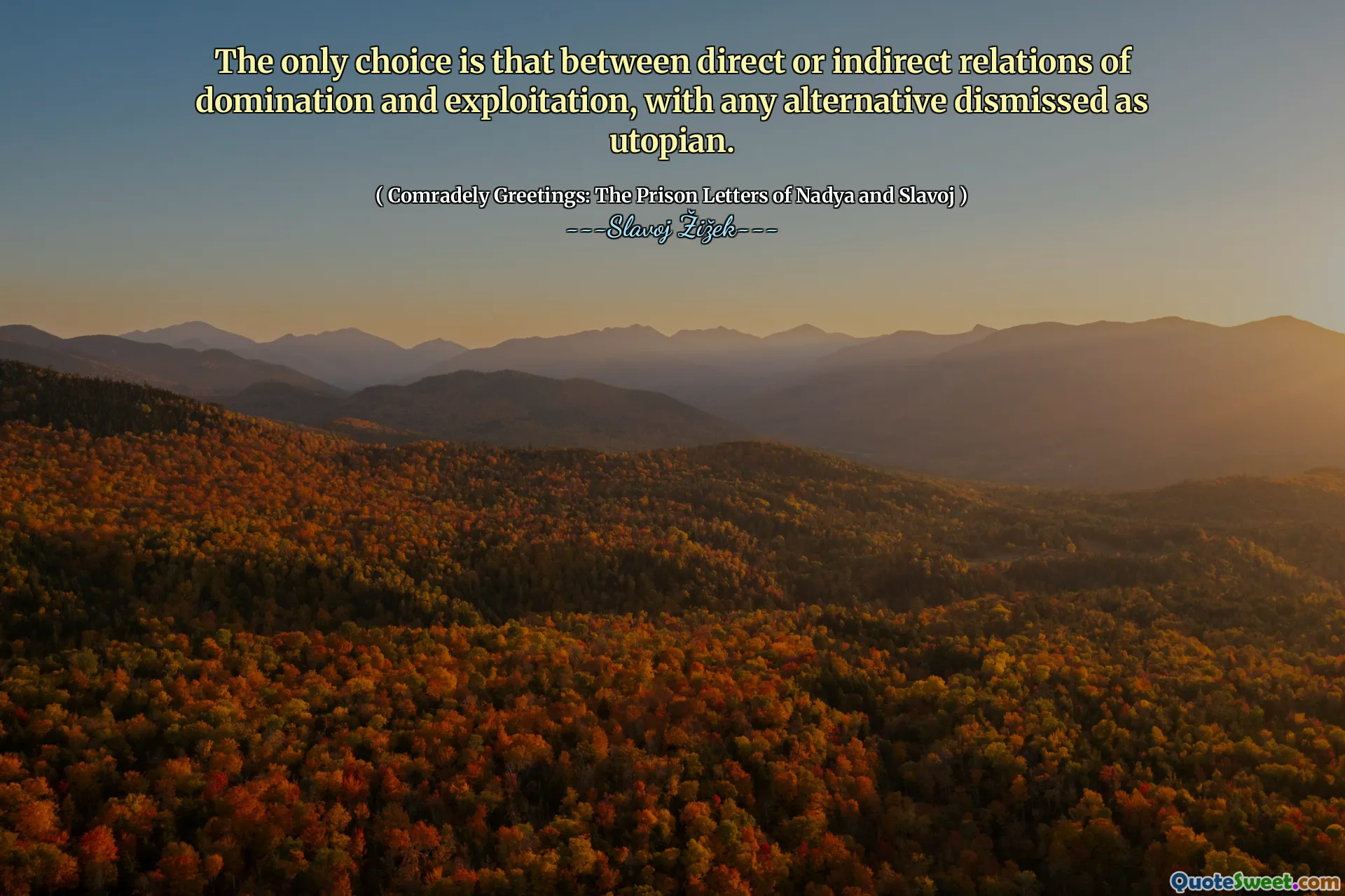
The only choice is that between direct or indirect relations of domination and exploitation, with any alternative dismissed as utopian.
This quote from Slavoj Žižek expresses a stark view on societal and political structures, highlighting a perceived binary choice between different forms of domination and exploitation. What is particularly provocative is the assertion that any alternative to these modes is often rejected as utopian. This suggests a deep skepticism about the feasibility of completely different social models that do not entail some form of domination or exploitation.
Žižek challenges us to reconsider the rigidity of our political imagination and the frameworks within which we evaluate possibility. The assertion reveals a critical tension: on one hand, a certain pessimism or realism about the difficulty of achieving a truly non-exploitative society; on the other, an indictment of dismissing alternatives prematurely simply because they seem idealistic or difficult.
This dichotomy between direct and indirect domination forces reflection on the subtleties of power dynamics—domination is not only overt and explicit but can be hidden and systemic, embedded within social relations that appear benign or natural. The quote pushes the reader to be vigilant about power structures in all their forms and to question the sometimes cynical rejection of utopian thinking as mere fantasy.
However, categorizing all alternatives as utopian also raises questions: does it discourage genuine transformative efforts for fear of impracticality? Or does it serve as a challenge for activists and thinkers to conceive more pragmatic, nuanced, and effective ways to transcend domination? Ultimately, Žižek’s statement is a powerful prompt to critically engage with political possibilities rather than accept the status quo or dismiss alternatives out of hand.






